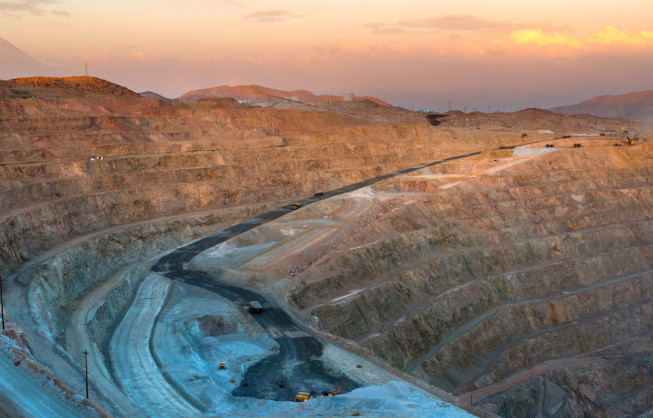Informal mining boom is biggest fear for Peru’s copper investors
The biggest threat to Peru tapping more of its giant copper deposits is rising informal and illegal mining activity, according to the head of the country’s main industry association, SNMPE.
Peru has slipped to third in the global copper-production ranking and last year posted its first decline in output in five years. This year it should be able to get back to growth, albeit slightly, and reach a record 3.4 million metric tons by decade-end, according to Julia Torreblanca, SNMPE’s President.
But much depends on containing informal operations that are encroaching on concessions — a trend that opens the door to criminal groups, Torreblanca said. More than 20 companies — including Southern Copper Corp., MMG Ltd., First Quantum Minerals Ltd. and Teck Resources Ltd. — have been affected, with tens of billions of dollars in investments on the line that depend on the nation’s ability to navigate the issue.
“The biggest fear among investors is the increase in informal activity,” she said in a Wednesday interview. Besides security issues, another barrier to mining investments is red-tape, she said.
To be sure, informal copper output is still minimal compared with formal production. But Peru’s government is starting to acknowledge the existence of large-scale informal mining of copper, warning that high prices could see the activity grow in the near future.
Conflicts between property and concession holders have become key issue, with the government struggling to strike a balance. Peru’s rich copper and gold deposits have attracted hundreds of thousands of small-scale miners, who work predominantly on lands where they do not hold mineral rights. An estimated 40% of Peru’s gold exports originate in informal mines.
Many use a temporary registry call Reinfo, which allows them to operate as they go through the process of formalizing. Reinfo, which has just been until the end of 2025, is widely opposed by the industry, which sees the permits as a cover for illegal activity.
Now, proposed legislation for artisanal and small-scale mining, dubbed the MAPE Law, has been sent to Congress. But the industry warns a current draft being debated could end up legitimizing informal activity and further weakening formalization efforts.
“It’s a big worry,” Torreblanca said.






نظر: